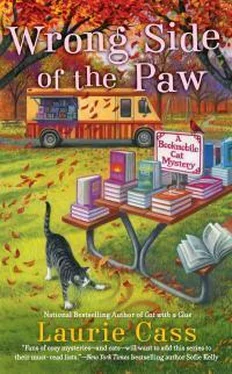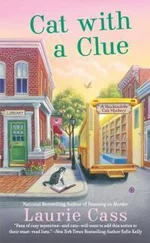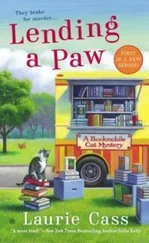“Who cares if it fits or not?” Josh frowned. “It’s her office. Can’t she set it up the way she wants without getting crap?”
He had a point, but Holly wasn’t going to let him win the round. “If it’s in a public space, no,” she said. “There are expectations that public decor is suitable to its surroundings.”
“Expectations by who?” Josh asked.
From the sneer in the back of his voice, I could tell those two were about to launch into one of their habitual arguments. If I hadn’t met both sets of their parents, I would have assumed they were siblings. Ones that had never gotten along. To distract them, I said, “Jennifer also wants a written monthly report to take to the board.”
“What’s the point of a monthly report,” Holly asked, “if you’re already doing an annual one? Sure, the annual came from Stephen, but everyone knows you wrote most of it.”
The board didn’t, but I let her keep her illusions. “There’s value in keeping her up to date. Plus the annual report will be easy with the monthly ones in hand. If I have twelve monthly reports, practically all I have to do it staple them together and make a new cover.”
“Sure,” Josh said. “Like you’re going to do that.”
He was right, of course. No matter what, I’d spend hours and hours working on the annual report, laboring over what should be included and what should be left out.
“Doesn’t she know how hard you work?” Holly said, a little too loudly. “Doesn’t she know that the last thing you need is more things to do, especially stupid things?”
The conversation was headed straight into Jennifer-bashing territory, so I hunted for a new topic. “Do either of you know Leese Lacombe?”
“Is that Brad’s sister?” Josh asked. “Isn’t she the one they arrested for killing their dad?”
“Dale Lacombe was murdered?” Holly’s eyes went wide. “Where have I been that I hadn’t heard?”
If I’d been smarter, I would have changed the subject to something less fraught. Whether schools should teach cursive writing, say, or whether our current taxation system was fair and equitable. “Leese didn’t kill anyone,” I said. “Anyway, no one has said it was murder.”
And since I really didn’t want to talk about Dale Lacombe— those pale blue eyes —I cheated. “Did I tell you two that Jennifer has asked me to cut the bookmobile’s budget?” Cheating, definitely, but it worked like a charm.
Eventually, I did get to eat my lunch. Which was a good thing, because going foodless for long stretches without getting cranky was not one of my gifts.
After I ate, it was time for a stint at the reference desk. Late afternoon was my favorite time to be the reference librarian because that was the time the schoolkids came in to research their projects.
The kids typically fell into two camps: the kind who had never talked to a librarian before and didn’t quite realize I was human, and the kind who thought my job was completely unnecessary, reference librarians having been replaced by the Internet years ago.
I had a couple of each type that afternoon, all four of them boys in the twelve-year-old range, and all four had a list of things in the library they had to use.
“This is a stupid assignment,” one of the boys said, looking at the grimy, crumpled list in his hand. “No one needs libraries anymore. Everything is on the computer.”
I pointedly glanced around the room since almost every table was occupied by one or more people. The kid didn’t clue in. I considered giving him the Neil Gaiman quote of “Google can bring you back 100,000 answers. A librarian can bring you back the right one,” but let it go. From the set of his chin, I could tell the kid wasn’t willing to listen to Neil Gaiman or to the possibility of joyful serendipity that only browsing through book stacks could bring.
“Not everything,” another of the boys said. This one wore a Green Bay Packers hat, which illustrated his willingness to stand out. “There are lots of books in the library that aren’t on the Internet. I mean, they’re there, but you can’t read them without getting someone to buy them for you.”
“Who wants to read a bunch of dumb books?” his classmate said. “How many of those stupid Harry Potter books do you need?”
“Either way,” I said, cutting in before the argument went the way of Holly and Josh’s discussions, “your assignment still needs to be done. Let me show you some tricks to remembering the Dewey decimal system.”
All four of the kids got such pained looks on their faces that I laughed. “Don’t think of it as having to remember more numbers,” I said. “Think of it as a shortcut to finding what you want.”
“Never thought of it that way,” said one of the boys.
“Me, either,” said a taller female voice.
I turned and saw Leese leaning against the reference counter. She smiled. Sort of. “When you’re done, can I talk to you for a minute?” she asked.
At my nod she pulled out the nearest chair, dropped into it, and started flipping through a book that had been left there ten minutes ago, one I’d yet to return to its home in the 590s. Though I was pretty sure that my friend had no interest in the history of taxidermy, you never knew.
I pulled my attention back to the already restless kids. In spite of wanting to hurry them through their assignment so I could talk to Leese, I did my best to make sure they understood why there were numbers in front of and behind Mr. Dewey’s decimal. At the end, it was possible that half of them might retain ten percent of what I’d said, so I considered the tutorial a success.
“What’s up?” I sat in the chair next to Leese.
She turned a page of the book, which showed a picture of a stuffed weasel, then shut it, saying, “Oh, I was in town to get some paperwork recorded at the county building, so I thought I’d stop by.”
I squinted at her, not quite believing the story. “You said you wanted to talk to me.”
“What’s that? Oh, sure. Well, I meant, you know . . . just chatting.”
Right. “Leese, if you want to talk about anything, you know I’ll listen. I’m a good listener, just ask Eddie.”
She smiled at that, but still didn’t say anything.
I slid forward on my chair so no one else would hear me. “If it’s about your dad,” I said softly, “I’ll listen. If it’s about the police investigation, I’ll listen. If it’s about not being able to find pants that fit, I’ll listen.” And I would. Not only because I felt a vague sense of guilt that Eddie had been the one to discover Dale’s body and hence drag Leese into trouble, but mostly because she was a good person and a friend.
For a long moment, she didn’t say anything. Then, at last, she half turned toward me and said, “The final autopsy report on my dad is done. My attorney got a copy of it.”
“Oh,” I said. “That must be . . .” But I had no idea how that must have been. Painful? Difficult? Weird?
Leese gave a twisted smile. “Yeah. Exactly. It’s bizarre, is what it is. Autopsies are done down in Grand Rapids, at Spectrum, after they’re brought downstate by the county’s medical examiner investigator.”
More bizarreness. I suppressed a shiver and waited for her to go on.
“One of the main conclusions was that the time of death was approximately twelve hours before the EMT squad arrived that afternoon, with a three hour possibility of error either way.” She paused and went on. “The cause of death was a broken neck.”
“A . . . what?”
Leese looked off into the distance. “A neck broken so badly that the spinal cord was severed, which caused a nearly instant death. Apparently a broken neck doesn’t always mean death, but in this case it did.”
Читать дальше












